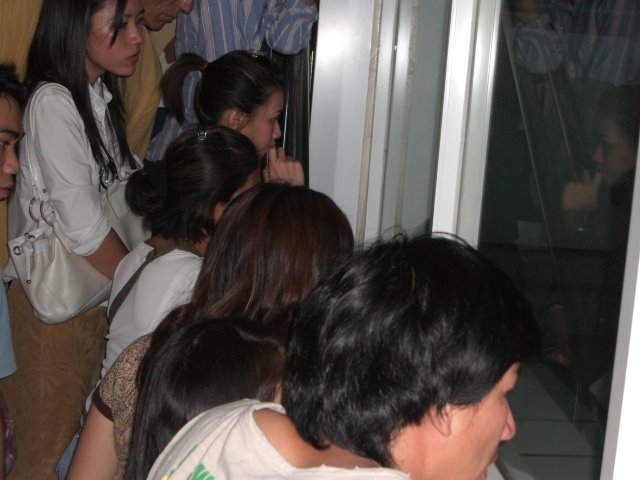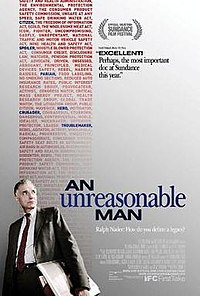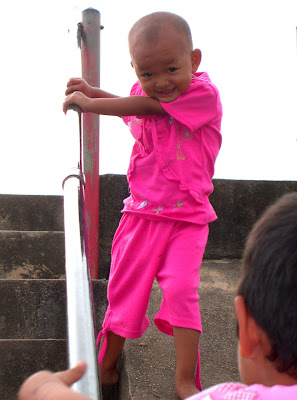Thailand's level of development is far beyond that of neighboring Cambodia. So much so that calling both nations "developing" amounts to a grossly misleading kind of labeling. But that's how both nations routinely get described. This was a point Collier made in his recent book
The Bottom Billion. Collier said the West should ask how best it may assist the poorest one billion human beings, and not lump them together with more advanced countries.
Perhaps we should refer to countries like Thailand, Brazil or Turkey as "Second World." That's the term Parag Khanna uses for them in “The Second World: Empires and Influence in the New Global Order.”
An extract from his important new book appears in this Sunday's New York Times Magazine. Khanna says US global hegemony is already a thing of the past.
Khanna envisions a world with three superpowers: the US, Europe, and China. Each power competes with the other two for the allegiance of states in the Second World. The Second World, in this vision, holds the balance of power.
Blogging from Asia, it's easy to nod in agreement. From my vantage point (Bangkok), Khanna's Second World has arrived.
When Thailand's king
celebrated his 80th Birthday, one guest of honor was the Defense Minister of China. Yet Thailand is an ally of the United States. Or is it? That's Thailand's ideal strategy for this new era: play China and the US off against one another. Be on good terms with both powers, but don't let either think they've won you over. An alliance between a second tier power and and a superpower is not a steady marriage in the new world order. It looks more like dating. Brazil, Turkey, South Africa, and Egypt -- to name but a few -- are other Second World powers which have already started playing the new dating game.
Khanna points to the new global economic reality. In just thirty years, global economic power has shifted three times. Until the 1980s, trans-Altlantic trade dominated, but by the 1990s the trans-Pacific trade was most consequential. Today, trade within the India-Japan-Australia triangle is greatest, according to Khanna. Most of the world's wealth is concentrated in Asia. Khanna writes:
Like Europeans, Asians are insulating themselves from America’s economic uncertainties. Under Japanese sponsorship, they plan to launch their own regional monetary fund, while China has slashed tariffs and increased loans to its Southeast Asian neighbors.
Last week at Davos, George Soros said that the financial crisis centered in the US will accelerate the divestment of Asia from the US.
Khanna's comments about China are also worth quoting as they are prescient -- China being the big new factor in the world:
The East Asian Community is but one example of how China is also too busy restoring its place as the world’s “Middle Kingdom” to be distracted by the Middle Eastern disturbances that so preoccupy the United States. In America’s own hemisphere, from Canada to Cuba to Chávez’s Venezuela, China is cutting massive resource and investment deals. Across the globe, it is deploying tens of thousands of its own engineers, aid workers, dam-builders and covert military personnel. In Africa, China is not only securing energy supplies; it is also making major strategic investments in the financial sector. The whole world is abetting China’s spectacular rise as evidenced by the ballooning share of trade in its gross domestic product — and China is exporting weapons at a rate reminiscent of the Soviet Union during the cold war, pinning America down while filling whatever power vacuums it can find. Every country in the world currently considered a rogue state by the U.S. now enjoys a diplomatic, economic or strategic lifeline from China, Iran being the most prominent example.
The main problem with Khanna's tripartite division of the world is that it would seem to pit Europe against the US. I don't see how this can happen without China emerging with a decisive advantage over the other two powers. China won't actually dictate terms to quite the extent America could in the 1990s, but by its intransigence -- by its demonstrated willingness to put trade interests before all else -- it is likely to exercise a veto-by-default over any progressive international policies of any kind. To a large extent, it already does. For example, I doubt Collier's ideas about helping the "Bottom Billion" finds quite the enthusiastic audience in Beijing as they do in London. Will China care any more about the global environment than it cares about its own poisoned countryside? Will China will put greater emphasis on human rights abroad than it does at home? Neither seems likely.
The only hope of countering China's
indifference to issues of global importance will be US and European unity on the global issues of the day. To some extent, Khanna acknowledges this. One of Khanna's points of advice to the next US president is to
. . . convene a G-3 of the Big Three. But don’t set the agenda; suggest it. These are the key issues among which to make compromises and trade-offs: climate change, energy security, weapons proliferation and rogue states. Offer more Western clean technology to China in exchange for fewer weapons and lifelines for the Sudanese tyrants and the Burmese junta. And make a joint effort with the Europeans to offer massive, irresistible packages to the people of Iran, Uzbekistan and Venezuela — incentives for eventual regime change rather than fruitless sanctions. A Western change of tone could make China sweat. Superpowers have to learn to behave, too.
As I see it, either the US and Europe will learn to work together as equal partners, or shortly we will all be living in China's ravaged backyard. Unless the US and Europe largely cooperate, China's policy of trade first wins by default. Moreover, the West must inspire the emerging democracies of the Second World by its own example. In fact, if there's going to be a watchword for this new era of global diplomacy, I would say it's "leadership by example."
Yesterday's joint statement on Burma,
issued by the foreign ministers of the US, France and the UK, was a small but significant step in the right direction.
 This is quite ironic. The week when Thais should be celebrating the restoration of freedom and democracy, a book written in condemnation of the coup gets banned.
This is quite ironic. The week when Thais should be celebrating the restoration of freedom and democracy, a book written in condemnation of the coup gets banned.



















